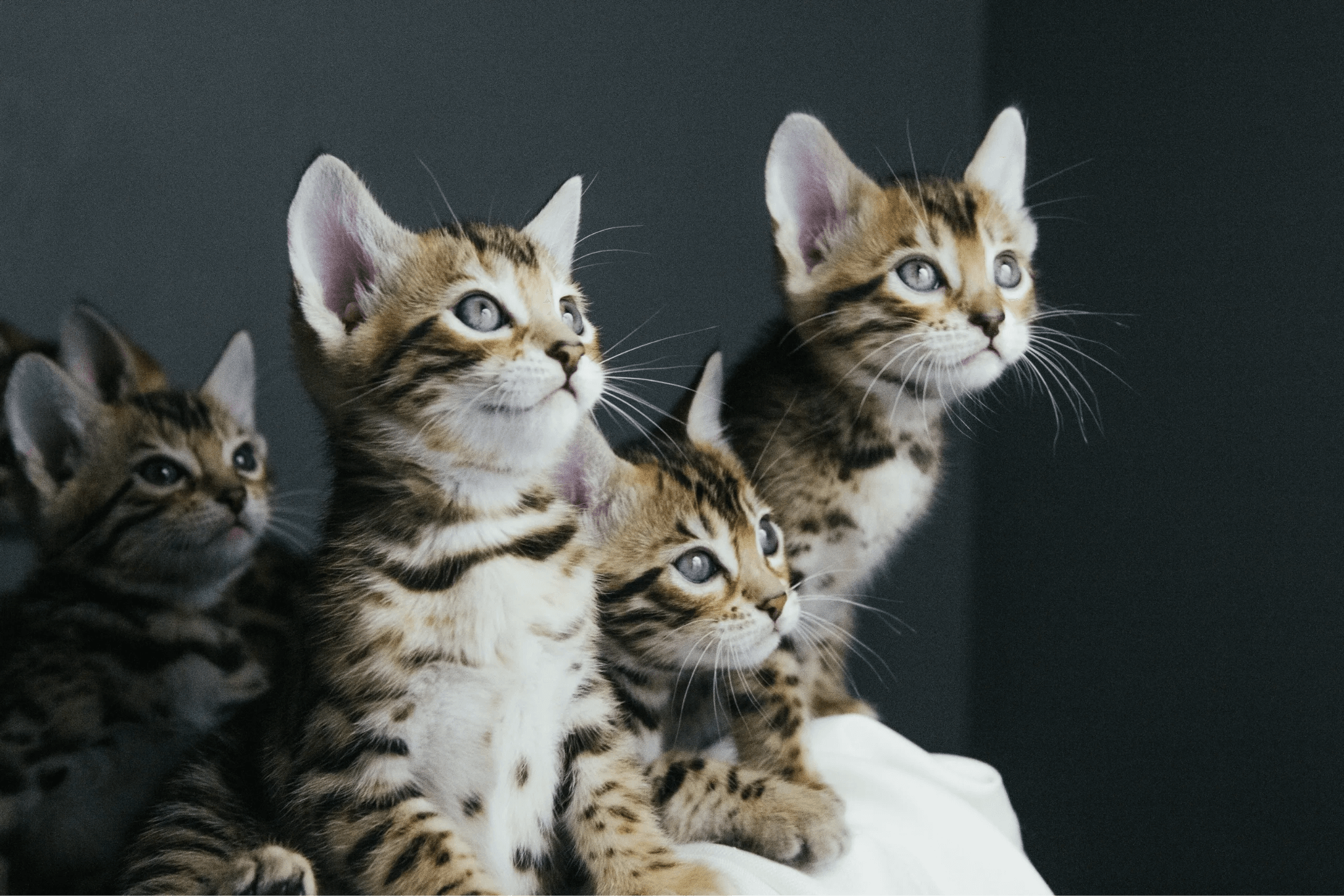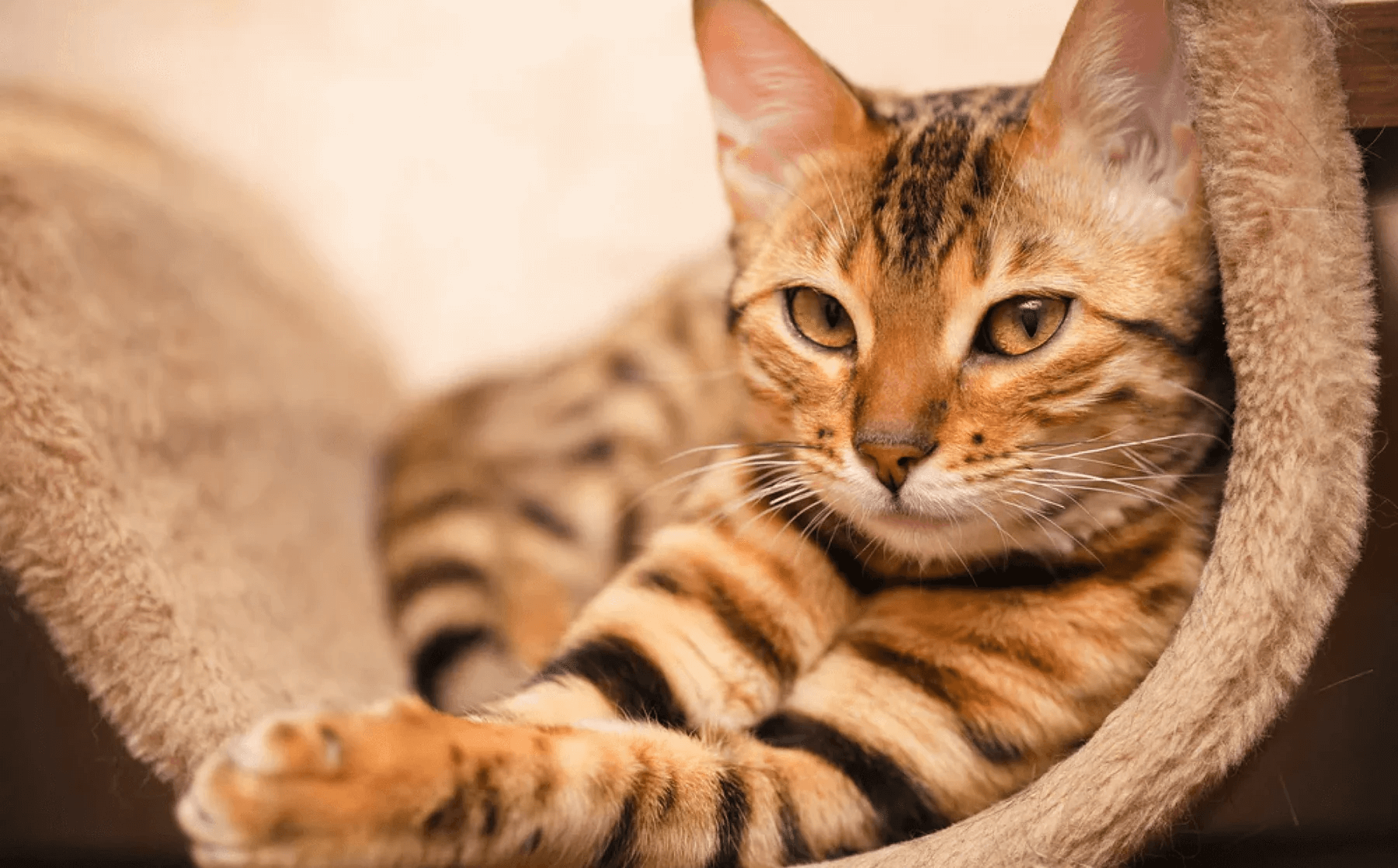Bengal kittens are among the most eye-catching and energetic cat breeds you’ll ever come across. With their wild leopard-like coats and spirited personalities, they’re not just beautiful — they’re also incredibly intelligent, playful, and affectionate. Bengal cats have won the hearts of feline lovers around the world, and it’s no surprise that many people are searching online for bengal kittens for sale cheap on platforms like kittensup4sale. But before welcoming one of these spotted wonders into your home, it’s essential to understand their unique traits, care needs, and what it takes to raise a healthy, happy bengal.
In this comprehensive guide, we’ll explore the bengal kitten’s personality, ideal diet, grooming needs, and training tips to help you become the best bengal parent possible.

The bengal character: bold, curious, and full of energy
Bengal kittens are anything but ordinary. Descended from a cross between domestic cats and the Asian leopard cat, they retain a wild streak, but don’t worry, they’re totally domesticated. What you’ll notice first is their bold nature. Bengals are high-energy, intelligent, and constantly curious.
These cats are not the kind to sit still for long. They want to be in the middle of the action, whether that means chasing a feather toy, leaping from shelf to shelf, or figuring out how to open a cabinet. They are incredibly interactive with their humans, often following you from room to room and getting involved in everything you do.
Personality traits
- High energy: Bengals are always on the move. They need lots of stimulation and space to run and climb.
- Intelligent: These cats are problem solvers. They learn quickly and love puzzles or interactive games.
- Affectionate: While not always lap cats, bengals bond strongly with their humans. They may not want to snuggle 24/7, but they’ll be involved in your life every step of the way.
- Vocal: Bengals are known to “talk” a lot. They’ll chirp, trill, and meow to get your attention or express their mood.
If you’re looking for a quiet, low-key lap cat, the bengal might not be for you. But if you want a fun-loving, intelligent companion that will keep you on your toes, look no further.
Diet: fueling a feline athlete
Because bengals are such active cats, their diet needs to match their energy. They require a protein-rich diet to maintain their muscle tone and health. High-quality commercial cat food that lists real meat (like chicken, turkey, or fish) as the first ingredient is essential. Avoid foods with fillers like corn, soy, or artificial additives.
Ideal diet tips
- High protein: Bengals need more protein than many other breeds.
- Wet and dry food combo: Wet food helps with hydration, while dry food supports dental health.
- Fresh water: Bengals love running water, so a pet fountain can encourage them to drink more.
- Treats in moderation: Use high-protein treats like freeze-dried meat for training and enrichment.
Some bengal owners opt for raw diets, but this should only be done under the supervision of a vet or feline nutritionist, as improper feeding can lead to serious health issues.
Grooming and general care
One of the benefits of owning a bengal kitten is that they are relatively low-maintenance when it comes to grooming. Their short, dense coats don’t mat easily and only need occasional brushing to remove loose hairs and keep their fur shiny.
Grooming needs
- Brushing: Once a week is usually enough.
- Nail trimming: Check nails every 1–2 weeks.
- Dental care: Dental treats or brushing their teeth helps prevent plaque.
- Ear cleaning: Only clean if you notice buildup — always with a vet-approved cleaner.
Despite their wild appearance, bengals are clean cats and often enjoy grooming themselves. They generally don’t need baths unless they get into something messy.
Training: a cat that learns like a dog
Bengals are one of the most trainable cat breeds out there. Their intelligence and curiosity mean they enjoy learning and they can be taught commands, tricks, and even how to walk on a leash.
Training tips
- Start early: Begin training when they’re kittens — bengals are like sponges when young.
- Positive reinforcement: Use treats, toys, or praise to encourage good behavior.
- Litter training: Most bengal kittens are already litter-trained when you bring them home, but consistency is key.
- Clicker training: Works wonderfully with this breed. You can teach them to sit, come, fetch, and more.
- Leash training: Bengals love the outdoors safely. Many owners leash-train their bengals for supervised walks.
Keep in mind, a bored bengal can be a destructive bengal. Training isn’t just about discipline — it’s also enrichment. Challenge them with puzzle feeders, obstacle courses, or even teach them to use a cat wheel.
Environmental needs: not just toys, but territory
Bengal kittens thrive in environments that mimic their wild ancestors’ need for climbing, jumping, and exploring. Your home should have plenty of vertical space — think cat trees, shelves, and perches. Bengals love to observe from high points.
Interactive toys are a must. They enjoy fetch, laser pointers, and feather wands, but also puzzle toys that challenge their minds. Rotate toys regularly to keep them interested.
If left unstimulated or alone for long hours, bengals can become anxious or destructive. They do best in homes where someone is around often or where they have a companion cat or even a dog to play with.
Socialization and compatibility
Bengals are social cats. They usually get along well with other pets, especially if introduced properly and enjoy the company of other cats. They’re good with children too, provided the kids understand how to handle cats gently.
Socialization tips
- Start introductions early and slowly.
- Give them their own safe space when introducing new people or animals.
- Use toys or treats during introductions to create positive associations.
Veterinary care and health
Bengals are generally a healthy breed, but like all cats, they should receive regular vet check-ups and vaccinations. Some bengal lines can be prone to genetic issues like heart conditions (hypertrophic cardiomyopathy) or digestive sensitivities, so getting your kitten from a responsible breeder or rescue is important.
Keep them up-to-date on flea prevention, deworming, and ensure they are spayed or neutered unless you’re planning to breed responsibly.
Bengal kittens are truly a special breed. With their striking good looks, high intelligence, and loving personalities, they bring excitement and energy to any home. They require time, attention, and a stimulating environment, but in return, they offer a rewarding and deeply interactive relationship.
Before you jump into the search for bengal kittens on sites like kittensup4sale, make sure you’re prepared for the commitment. Bengals are not couch potatoes — they are little adventurers with big hearts. But for the right family, a bengal can be the perfect feline companion: beautiful, bold, and always up for a game of chase.


